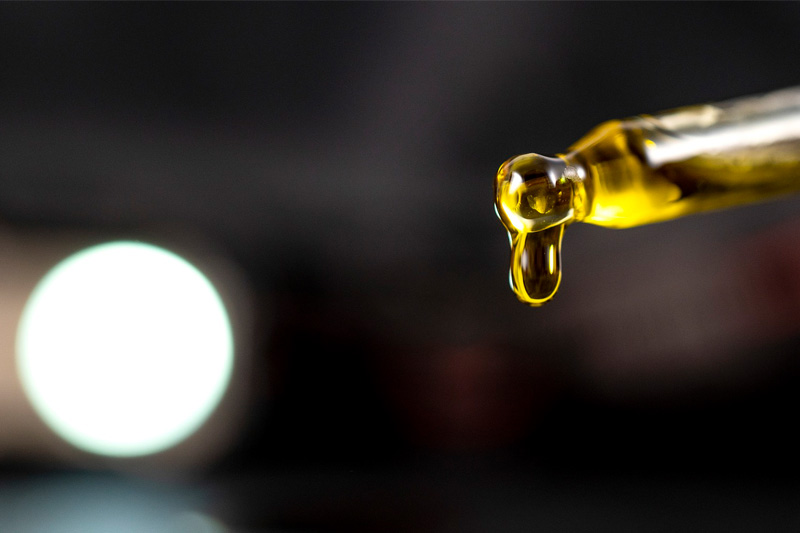Table of Contents [show]
 CBD has been creating quite a buzz in the wellness industry, touted as a miraculous cannabinoid with numerous health benefits. But amidst all the hype and excitement, it’s important to separate fact from fiction. So, are the purported benefits of full spectrum CBD truly miraculous or just another hoax? In this blog post, we will delve into the world of CBD and its variants, specifically focusing on full spectrum CBD. We will explore its potential benefits, examine scientific research and studies surrounding it, discuss any side effects or risks to consider, and provide guidance on choosing the right full spectrum CBD product. So sit back, relax, and let’s navigate through this intriguing world together!
CBD has been creating quite a buzz in the wellness industry, touted as a miraculous cannabinoid with numerous health benefits. But amidst all the hype and excitement, it’s important to separate fact from fiction. So, are the purported benefits of full spectrum CBD truly miraculous or just another hoax? In this blog post, we will delve into the world of CBD and its variants, specifically focusing on full spectrum CBD. We will explore its potential benefits, examine scientific research and studies surrounding it, discuss any side effects or risks to consider, and provide guidance on choosing the right full spectrum CBD product. So sit back, relax, and let’s navigate through this intriguing world together!
Understanding CBD and Its Variants
CBD, short for cannabidiol, is a naturally occurring compound found in cannabis plants. Unlike its infamous cousin THC (tetrahydrocannabinol), CBD does not have psychoactive properties and won’t get you high. Instead, it’s believed to offer a range of potential therapeutic benefits.
CBD comes in various forms, including full spectrum CBD, broad spectrum CBD, and CBD isolate. Full spectrum CBD contains all the natural compounds found in the hemp plant, including cannabinoids like CBD and THC as well as terpenes and flavonoids. Broad spectrum CBD is similar but with no detectable levels of THC. On the other hand, CBD isolate is pure cannabidiol without any additional compounds.
Full spectrum CBD is often considered more effective due to what’s known as the “entourage effect.” This refers to how different compounds work synergistically together to enhance their individual effects. So while each cannabinoid may have its own potential benefits on its own, when combined with others in full spectrum form, they can create a more powerful impact.
It’s worth noting that hemp-derived full spectrum CBD products contain trace amounts of THC (less than 0.3%), which are unlikely to produce any intoxicating effects or show up on drug tests.
Understanding these variants of CBD can help you make an informed decision about which type might be best suited for your needs. However,it’s important to consult with a healthcare professional before incorporating any new supplement into your routine,to ensure it aligns with your personal health goals.
What is Full Spectrum CBD?
Full Spectrum CBD, also known as whole plant extract, refers to a type of hemp oil that contains all the naturally occurring cannabinoids and terpenes found in the cannabis plant. Unlike CBD isolate which only contains cannabidiol, full spectrum CBD offers a wider range of compounds working together synergistically.
The main advantage of full spectrum CBD is something called the entourage effect. This phenomenon occurs when all the components of the cannabis plant work together to enhance each other’s therapeutic properties. It’s like a symphony where every instrument plays its part to create beautiful music!
In addition to cannabidiol (CBD), full spectrum products contain trace amounts of other cannabinoids such as tetrahydrocannabinol (THC), cannabinol (CBN), and cannabigerol (CBG). These compounds have their own unique benefits and can contribute to an overall sense of well-being.
Moreover, full spectrum CBD also includes various terpenes which give different strains their distinct aromas and flavors. Terpenes not only add depth to the sensory experience but may also offer therapeutic effects on their own.
By harnessing the power of multiple cannabinoids and terpenes in one product, full spectrum CBD provides a more comprehensive approach to wellness compared to isolated forms of CBD. Whether you’re seeking relief from pain or looking for relaxation after a long day, full spectrum CBD might just be what you need!
The Potential Benefits of Full Spectrum CBD
Full spectrum CBD is gaining popularity as a natural remedy for various health issues. This cannabinoid extract contains not only CBD but also other beneficial compounds found in the hemp plant, such as terpenes and trace amounts of THC.
One potential benefit of full spectrum CBD is its ability to provide relief from chronic pain. Studies have shown that cannabinoids can interact with the body’s endocannabinoid system, which plays a role in regulating pain perception. By targeting these receptors, full spectrum CBD may help alleviate discomfort and improve overall quality of life for individuals suffering from conditions like arthritis or fibromyalgia.
Another area where full spectrum CBD shows promise is in managing symptoms related to mental health disorders. Research suggests that it may have anxiolytic properties, helping reduce anxiety and stress levels. Additionally, some studies indicate that it could potentially aid in improving sleep patterns and reducing insomnia.
Furthermore, full spectrum CBD has been studied for its anti-inflammatory properties. Chronic inflammation is associated with various diseases such as heart disease, diabetes, and even certain types of cancer. By reducing inflammation within the body, full spectrum CBD might contribute to overall wellness and disease prevention.
While more research is needed to fully understand the benefits of full spectrum CBD, early findings are promising. It’s important to note that individual results may vary and consulting with a healthcare professional before starting any new supplement regimen is always recommended.
In conclusion: Although more scientific evidence is required to confirm the extent of its benefits fully! The initial research on full-spectrum CDB indicates its potential effectiveness against conditions like chronic pain! Mental health disorders! And inflammation-related diseases!! As always!!! It’s crucial!!!! To consult with your doctor!!!! Before trying any new supplements!!!!!
Scientific Research and Studies on Full Spectrum CBD
The potential benefits of full spectrum CBD have sparked extensive scientific research and studies in recent years. Researchers are intrigued by the powerful compounds found in hemp plants, known as cannabinoids, which interact with our body’s endocannabinoid system.
Numerous studies have shown promising results when it comes to using full spectrum CBD for various health conditions. For instance, a study published in the Journal of Clinical Investigation found that CBD may help reduce symptoms of anxiety disorders by affecting brain receptors responsible for regulating fear and stress responses.
Another study conducted at the University of Sao Paulo in Brazil discovered that full spectrum CBD could potentially alleviate chronic pain caused by conditions like arthritis or multiple sclerosis. The researchers observed a significant reduction in pain levels among participants who used CBD compared to those who received a placebo.
Moreover, some research suggests that full spectrum CBD might possess anti-inflammatory properties. A study published in the European Journal of Pain showed that topical application of CBD reduced joint inflammation and improved mobility in rats with arthritis.
Furthermore, there is growing evidence supporting the use of full spectrum CBD for epilepsy treatment. In fact, Epidiolex, an FDA-approved medication containing pure plant-derived cannabidiol (CBD), has shown remarkable efficacy in reducing seizures associated with Dravet syndrome and Lennox-Gastaut syndrome.
While these studies provide valuable insights into the potential benefits of full spectrum CBD, it is important to note that more research is needed to fully understand its mechanisms and effects on different health conditions. It is always advisable to consult with a healthcare professional before incorporating any new supplement into your routine.
In conclusion,
the scientific research and studies conducted so far suggest that full spectrum CBD holds great promise as a natural remedy for various ailments such as anxiety disorders, chronic pain, inflammation, and epilepsy. However,
it is crucial to approach these findings with caution while awaiting further conclusive evidence through ongoing research endeavors.
Side Effects and Risks to Consider
While full spectrum CBD offers a wide range of potential benefits, it’s important to be aware of the possible side effects and risks associated with its use. Though generally well-tolerated, some individuals may experience adverse effects.
One common side effect is drowsiness or fatigue, especially when taking higher doses. This can make activities that require alertness, such as driving or operating heavy machinery, unsafe. It’s crucial to start with low doses and gradually increase as needed while closely monitoring your body’s response.
Another potential concern is the interaction between CBD and certain medications. CBD can inhibit enzymes in the liver that metabolize drugs, leading to higher levels of medication in the bloodstream. If you’re currently on any prescription medications, it’s essential to consult with your healthcare provider before incorporating full spectrum CBD into your routine.
Additionally, some people may experience gastrointestinal issues such as diarrhea or changes in appetite when using CBD products. These symptoms are usually mild and temporary but should still be taken into consideration.
It’s worth noting that while full spectrum CBD contains only trace amounts of THC (less than 0.3%), there is a possibility of experiencing psychoactive effects if consumed in high quantities. Individuals who are sensitive to THC or have concerns about drug testing should opt for broad spectrum or isolate-based products instead.
As with any supplement or medication, it’s always advisable to consult with a healthcare professional before adding full spectrum CBD to your wellness regimen. They can provide personalized guidance based on your individual health profile and help you navigate any potential risks associated with its use.
Remember that everyone reacts differently to substances like CBD, so what works for one person may not work for another – it all depends on unique factors such as metabolism and sensitivity level. Being informed about both the benefits and risks will empower you to make an educated decision when considering full spectrum CBD products.
Choosing the Right Full Spectrum CBD Product
Choosing the right Full Spectrum CBD product can be overwhelming with so many options available in the market. To ensure you make an informed decision, it’s essential to consider a few key factors.
First and foremost, check the source of the hemp used to extract CBD. Opt for products made from organically grown hemp that is free from pesticides and harmful chemicals. This ensures a higher quality product and reduces the risk of potential side effects.
Next, pay attention to the extraction method used by the manufacturer. CO2 extraction is considered one of the best methods as it preserves all beneficial compounds while eliminating any unwanted residues or contaminants.
Look for third-party lab testing results. Reputable brands will provide these test reports on their websites or upon request. These reports verify the potency and purity of their CBD products, giving you peace of mind about what you’re consuming.
Additionally, consider your individual needs when choosing a Full Spectrum CBD product. Whether you prefer oils, capsules, topicals or edibles – there are various consumption methods available that cater to different preferences and lifestyles.
Take into account customer reviews and feedback about specific brands or products before making your purchase. Hearing about others’ experiences can give you valuable insights into product effectiveness and overall satisfaction levels.
By considering these factors when choosing a Full Spectrum CBD product, you’ll increase your chances of finding one that suits your needs while ensuring safety and efficacy.
Conclusion: Separating Fact from Fiction
After exploring the world of CBD and its variants, specifically Full Spectrum CBD, it is clear that there are potential benefits to be gained. However, it is important to separate fact from fiction.
Scientific research and studies have shown promising results in areas such as pain management, anxiety reduction, and anti-inflammatory properties associated with Full Spectrum CBD. These findings cannot be ignored and provide a strong foundation for further exploration.
However, it is essential to approach Full Spectrum CBD with caution. While many people report positive experiences with minimal side effects, others may experience adverse reactions or interactions with medications. It is always recommended to consult with a healthcare professional before incorporating any new supplement into your routine.
Additionally, the market for Full Spectrum CBD products can be overwhelming due to the lack of regulation and standardization. This makes choosing the right product challenging but not impossible. Look for reputable brands that provide third-party lab testing results to ensure quality and purity.
In conclusion, while the benefits of Full Spectrum CBD seem promising based on scientific evidence and anecdotal accounts, more research is needed to fully understand its potential uses across various health conditions. It is crucial for individuals considering Full Spectrum CBD as a treatment option to do their due diligence by consulting medical professionals and purchasing from trusted sources.
So next time you come across claims about miraculous benefits or dismissals labeling it all as a hoax – remember that reality lies somewhere in between. The full spectrum of possibilities surrounding this cannabinoid compound continues to unfold as scientists delve deeper into its therapeutic potential!
More CBD Articles in Spinfuel:
CBD and THC – Why CBD Doesn’t Get You High – A 2023 Perspective
The Evolution of Wellness: Embracing CBD Vaping and Personalized Supplements
CBD Beyond 2023: Understanding The Expanding Marketplace
Using CBD Oils Over Aspirin for Canine Relief
Does CBD Oil Finally Have Verifiable Health Benefits in 2023 ?




